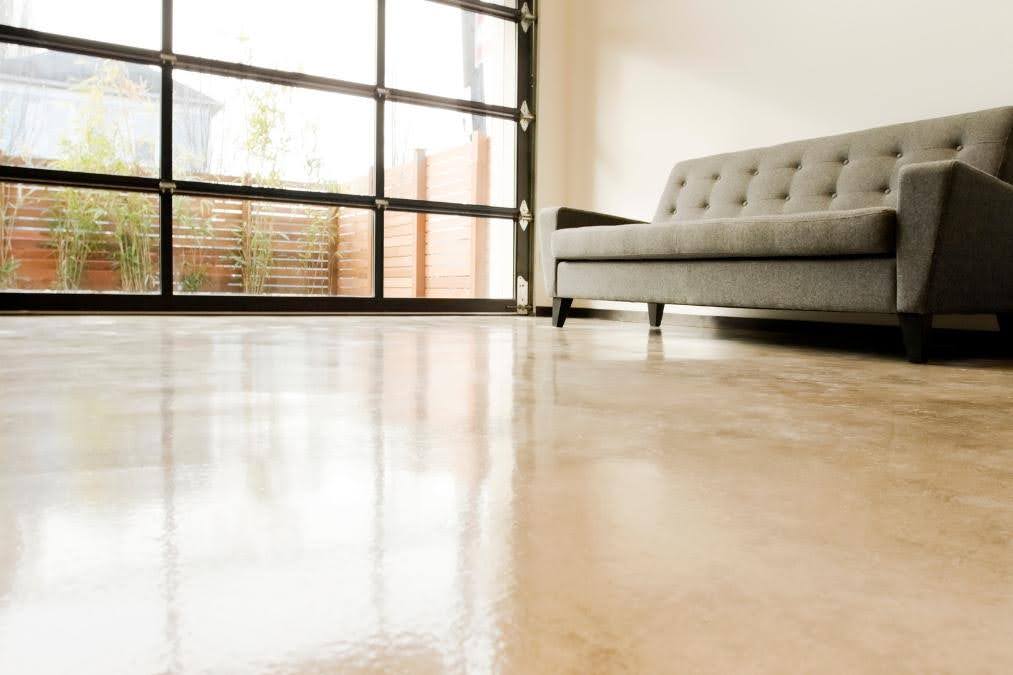
Polyurea Garage Coating Florida | Heat & Weather-Proof Floors
If your garage floor is cracking, peeling, or stained, it’s time for an upgrade that

July 17, 2024

Epoxy, once relegated toindustrial environments, has recently gained popularity in more glamorous and high-traffic areas such as hotel lobbies and rooms across Florida. This article explores the top ten reasons behind the rise of this innovative flooringoption, highlighting the benefits that make epoxy an ideal choicefor hotel floors.
Epoxy has become one of the popular flooring options for hotel floors largely due to its superior durability. It is composed of resin and hardeners that, when mixed, form a rigid plastic material that is both strong and resilient. This makes it ideal for areas with high foot traffic, such as hotel lobbies and corridors.
Epoxy is known to handle heavy loads –withstanding 10,000 psiand above on compressive strength tests. This means it can withstand the daily barrage of suitcases, cleaning carts, and constant foot trafficcommon in hotels.
This resilience extends the floor‘s lifespan, often allowing it to last decades without significant signs of wear. Studies on flooring materials consistently show that epoxy floors outperform many other types in durabilityand lifecycle costs, providing a solid return on investment.
Epoxy is a type of hotel flooring that can be customized in a wide rangeof colors and patterns. It can evenmimic other materials like marble, granite, or ceramic tiles. This allows hotels to achieve a high-end look without the associated cost of premium materials.
The ability to integrate logos and designs directly into the flooringcan also enhance branding efforts. Designers often use metallic pigments or colored flakes within the epoxy to create unique, eye-catching finishes that can define a space’s character, making it a popular choicefor areas that aim to impress guests.
Epoxy flooringsolutions are a cost-effective choicefor hotel floors primarily because of their longevity and low maintenanceneeds. The initial cost of installationis quickly offset by its superior durability, reducing the need for frequent replacements.
In addition, typicalepoxy cost ranges from $3 to $12while hardwood flooringand tile flooringcost $6 to $12 and $8 to $44 per square foot respectively. Maintenance costs are also reduced due to epoxy’s ease of cleaningand resistanceto stains and spills, which can translate into substantial savings for high-trafficbusinesses like hotels.
The installationof epoxy flooringis relatively quick, which is particularly beneficial for busy hotel environments that cannot afford extended disruptions. Depending on the size of the area, epoxy can be applied and ready for use within a couple of days.
This quick turnaround is due to the fast curing times of epoxy resins, which can harden within hours under optimal conditions. In cases where you still want it to be faster, you can take advantage ofEliteCrete’s specialized systems, which utilize specialized products and accelerators that further decrease the curing time.
Epoxy flooringrequires minimal maintenanceto preserve its aesthetic appealcompared to other flooringtypes, which is a crucial advantage in the hospitality industry. Its non-porous surfaceprevents stains and is easy to clean—usually needing only a mop and mild cleaning solutions.
Unlike carpets, it does not harbor bacteria or odors and does not require professional cleaning services to maintain its appearance. Additionally, its resistanceto scratches and general wear means that it remains aesthetically pleasing with minimal effort, an essential factor for maintaining the high standards expected in hotel settings.
Safety is an important area of concern in hotels, and epoxy flooringcontributes positively by offering built-in safety features. It can be formulated with textures oradditives that provide slip resistance, one of the must-have features for areas prone to moisturelike bathroom floors or pool areas. Epoxy also naturally resists fire, slowing the spread of flames and contributing to overall building safety. These features help ensure compliance with stringent safety codes in the hospitality industry.
In Florida’s humid climate, the resistanceof flooringto moistureand microbial growth is critical. Epoxy’s moisture-resistant natureprevents the common problems associated with damp and heavy foot trafficenvironments, which inhibits the growth of mold and mildew. Its seamless and impervious finishdoes not allow moistureto penetrate, which helps maintain indoor hygiene and reduces health risks associated with bacteria growth.
Epoxy contributes to improved indoor air qualityby eliminating the nooks and crannies that trap dust, allergens, and other pollutants. Its smooth and nonporous surfaceis easy to clean, ensuring dust and dirt are not embedded in the floor, as is often the case with carpets. This characteristic is particularly beneficial in hotels where air qualitycan significantly impact the comfort and health of guests.
The setting of a hotel is very favorable for epoxy due to the low maintenanceit requires. Unlike tile or carpets that may need deep cleaning once in a while, epoxy floors will only ever need the bare minimum. Epoxy’s stain resistancedoes not allow dirt, dust, or pathogens to thrive, thereby making cleaning and sanitizing easy.
Usually, maintenanceroutines include only basic sweeping and mopping with gentle cleaners, and all this makes it much less labor-intensive compared to the care required for other types of flooring. Adding to this, epoxies are durable enough to resist scratches and scuffs, most of them emanating from heavy foot trafficand luggage.
Epoxy flooringsolutions are renowned for their longevity, often lasting longer than many types of flooringfor hotel spaces when properly maintained. This extended lifespan makes it a cost-effective choice, as it minimizes the frequency of repairs and replacements.
Industryreports support that epoxy floors can last up to 30 years or more, making them one of the most sustainable flooring options available. The reduction in lifecycle costs not only includes fewer replacement cycles but also lower labor costs and less material waste, which is increasingly important in the hospitality industry‘s move towards more sustainable practices.
Epoxy floor‘s popularity in Florida hotels has become an excellent choicedue to the many benefits that align perfectly with the needs of the hospitality industry. From its wide varietyof selections, remarkable durability, safety features, and environmental benefits, this innovative flooringoption offers a solution that addresses both practical and aesthetic requirements.
By choosing epoxy, hotel owners can ensure a durable, attractive, and cost-effective flooringsolution that enhances both guest experienceand operational efficiency. This holistic array of benefits is why epoxy has become a favored choicefor hotel-friendly flooringthroughout Florida, reflecting a broader trend towards more resilient and sustainable building materials in the hospitalitysector.
However, to truly reap the benefits epoxy floors offer to hotels – the importance of a reliable professional cannot be overstated.Apex Epoxy Flooring, an expert flooringspecialist is renowned for its precision and quality, ensuring that Florida hotels maximize the potential of their floors.Contact usfor a partnership that elevates both the functionality and style of your hotel.
The installationtime for epoxy flooringin a typical hotel setting is around 3-5 days, considering the preparation of the surface, application of the epoxy coating, and curing process. Generally, for a medium-sized hotel, the installation process can be completed within a few days.
This includes surfacepreparation, which is crucial for a successful application, the epoxy itself, and the curing time, which can rangefrom 12 to 48 hours depending on the productused and ambient conditions. It’s important to note that while the area can be used shortly after installation, it typically takes about 7 days for the epoxy to cure and achieve maximum hardness and chemical resistancefully.
Yes. Just like the other hotel-friendly flooring options, it can be efficiently repaired if it sustains damage. For minor scratches or dents, the repair often involves simply reapplying a topcoat of epoxy. For more significant damages, such as deep cracks or chips that might occur in high-traffic areas, the affected portion is first thoroughly cleaned and then filled with an epoxy-based filler.
After the filler has been set and cured, a new layer of epoxy is applied over the top, blending it into the surrounding area seamlessly. This repair process is crucial for maintaining both the visual appealand functionality of flooringin commercial spaces, more so in the hotel industrywhich needs to ensure ongoing guestsatisfaction and safety.
Initially, epoxy flooringmight have a higher upfront cost compared to some traditional flooring options such as carpets. However, when considering the long-term costs, epoxy flooringoften proves to be more economical due to its superior durabilityand low maintenancerequirements. For instance, unlike marbleor solid wood floors, epoxy does not require frequent deep cleaning, refinishing, or early replacement due to wear and tear.
No. Epoxy, when fully cured, is non-toxic and safe for use in various environments, including incommercial spaces. However, during the installation process, epoxy can release volatile organic compounds (VOCs) and other chemical fumes that might pose health risks if not properly managed. Onceepoxy is fully cured it becomes inert with no ongoing emission of VOCs, ensuring safety for occupants. Therefore, it is recommended to only hire expert flooringspecialists who follow safety protocols and have the necessary expertise to fully ensure your safety for years to come.
Absolutely! Epoxy is an excellent choicefor hotel lobbies and areas that experience constant foot trafficdue to its durability, slip resistance, and ease of maintenance. Its ability to withstand heavy use without wear makes it a practical choicefor busy hotel environments.
Epoxy flooringis known for its ease of cleaningand minimal maintenancerequirements, which can lead to lower maintenance costs over time. Unlike wood flooringthat requires refinishing or carpets that need regular deep cleaning, epoxy floors can be maintained with simple cleaning procedures without the need for harsh chemicals.
Yes, epoxy is a versatile materialthat can be used in a wide arrayof areas, from flooringfor hotel rooms, guestrooms, and lobbies to kitchens and utility spaces. Its remarkable durabilityand moistureresistancemake it suitable for both decorative and functional spaces within the hospitality industry.
Written By:
Rachel Kim, from Northwestern University’s journalism school, excels in making complex technical topics accessible. Her focus on the benefits and customer information of epoxy floors over the past 15 years has helped many readers understand how to choose and care for their flooring investments effectively.

If your garage floor is cracking, peeling, or stained, it’s time for an upgrade that

Get a durable, easy-to-clean epoxy kitchen floor that resists heat and spills. Call now

Get a marble epoxy floor with a luxury look and lasting strength. Ideal for Florida

For just $2,700, give your 3-car garage a professional epoxy flooring finish backed by our lifetime warranty. Fill out this form below to take advantage of this limited time offer!
For just $2,300, give your 2-car garage a professional epoxy flooring finish backed by our lifetime warranty. Fill out this form below to take advantage of this limited time offer!
For just $2,700, give your 3-car garage a professional epoxy flooring finish backed by our lifetime warranty. Fill out this form below to take advantage of this limited time offer!
For just $2,300, give your 2-car garage a professional epoxy flooring finish backed by our lifetime warranty. Fill out this form below to take advantage of this limited time offer!
Ready to upgrade your garage with Apex Epoxy Flooring? Fill out the form below, and let us handle the rest. Whether it’s a 2-car or 3-car garage, we’re here to deliver top-notch service.
hospitality epoxy flooring, epoxy floors for hotels, hotel epoxy flooring, types of floors in hotels